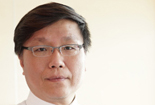Transitional Home Care (THC), a programme at SGH, aims to provide patients with immediate post-discharge support and care at home.

By Assoc Prof Lee Kheng Hock
Director, Office of Integrated Care
Senior Consultant and Head,
Family Medicine & Continuing Care
Singapore General Hospital
“All of us should deliberate carefully to determine if the patient and caregivers will be able to cope at home with the change. “
The Straits Times reported recently that more people are being re-admitted to public hospitals within 30 days of their discharge than before, an increase from 31,400 in 2011 to 36,400 in 2013. This would not have come as a surprise to those of us in healthcare given that we have a lot more patients with complicated medical conditions than before and a rapidly ageing population.
When frail elderly patients are discharged from the hospital, too often, they go from receiving total care in the hospital to self-care at home without adequate preparation or support. Not surprisingly, the patient and their caregivers are often confused and overwhelmed by the information overload the complexity of the tasks they are expected to do for themselves. This will promptly result in a return to the A&E and readmission to the hospital.
Transitional Home Care (THC), a programme under SingHealth’s Regional Health Systems office and operated by the Department of Family Medicine and Continuing Care at SGH, aims to provide patients with immediate post-discharge support and care at home so that they or their caregivers can take the time to acquire the knowledge, skills and equipment to provide the care needed until the patients have re-adjusted to living at home and in the community.
For patients who need help to ease their transition from hospital to home, the THC service can be activated upon a patient’s discharge and covers a three-month period. A team comprising doctors, nurses and allied health professionals then visits patients at home within a week of their discharge.
If patients need more help, they will be linked up to long-term home medical-care services in the community such as general practitioners located near the patients’ home and voluntary welfare organisations such as the Home Nursing Foundation.
From the early days in 2006 when transitional care was started, the service had developed into a multidisciplinary state-of-the art model of care which is evidence based and supported by data that demonstrate its cost effectiveness. The service is highly efficient with rotating teams going out to different zones according to their patients’ preferred visit-schedules. The Office of Integrated Care at SGH serves as the nerve centre which control the movement of the teams like an air traffic control system.
For example, if a patient is found to have unresolved problem of swallowing, the visiting team brings the information back to the home base. The speech therapist dedicated to supporting the service may then provide advice or provide care at the patient’s home if needed. The speech therapist will continue to work closely with the team through the multidisciplinary meetings and common information system until the problem is resolved.
For patients who need financial help, a social worker is assigned. For complex cases, our staff hold formal discussions that bring the different specialties together to recommend the care needed.
There is increasing awareness of the need for transitional care among the clinical staff at SingHealth. Before discharging patients, all of us should deliberate carefully to determine if the patient and caregivers will be able to cope at home with the change in health status. If not, they should activate the Transitional Home Care service so that the patients can get help. In this way, the good work that our clinical teams do during the hospital admission will not become unravelled the moment the patient leaves the hospital but instead will continue to remain in the comfort and safety of their home environment.
The cost for the Home Care service is subsidised based on household-means testing. Subsidies for eligible Singapore Citizens range from 30% to 80%. Charges depend on the type of visit required such as medical, nursing or therapy, and can range from about $50 to $240.
More information can be found at http://www.sgh.com.sg/clinical-departments-centers/family-medicine-continuing-care/pages/transitional.aspx
